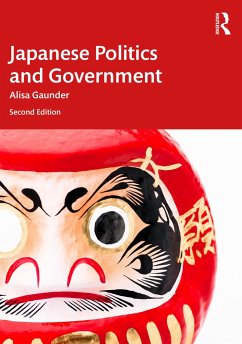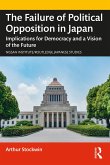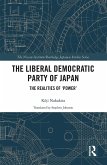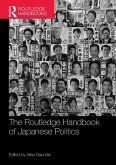The revised 2nd edition of this successful textbook explores Japanese politics in the postwar era from theoretical and comparative perspectives.
After providing historical context, it offers an in-depth exploration of postwar political institutions, political reform in the 1990s, the policymaking process, and the politics of economic growth and stagnation. By delving into Japan's international relations, the book sheds light on Japan's security and foreign policies, and Japan's role in Asia. The textbook concludes by addressing what has changed since party alternation in 2009, the triple disaster in March 2011 and the global Covid pandemic.
Themes and questions addressed throughout the text include:
How and why did Japan modernize so successfully when so many other countries fell prey to colonialism and authoritarianism?What explains the Japanese economic miracle and its subsequent economic stagnation?What accounts for Japan's successful democratization?In the international realm, why has Japan achieved economic superpower status without achieving political superpower status?What is the future trajectory of Japanese politics?
Connecting Japan to larger themes in comparative politics and linking Japan's history, institutions, policymaking process, and international relations to experiences and structures in other countries, this book is essential reading for students of Japanese or Asian Politics.
After providing historical context, it offers an in-depth exploration of postwar political institutions, political reform in the 1990s, the policymaking process, and the politics of economic growth and stagnation. By delving into Japan's international relations, the book sheds light on Japan's security and foreign policies, and Japan's role in Asia. The textbook concludes by addressing what has changed since party alternation in 2009, the triple disaster in March 2011 and the global Covid pandemic.
Themes and questions addressed throughout the text include:
How and why did Japan modernize so successfully when so many other countries fell prey to colonialism and authoritarianism?What explains the Japanese economic miracle and its subsequent economic stagnation?What accounts for Japan's successful democratization?In the international realm, why has Japan achieved economic superpower status without achieving political superpower status?What is the future trajectory of Japanese politics?
Connecting Japan to larger themes in comparative politics and linking Japan's history, institutions, policymaking process, and international relations to experiences and structures in other countries, this book is essential reading for students of Japanese or Asian Politics.









